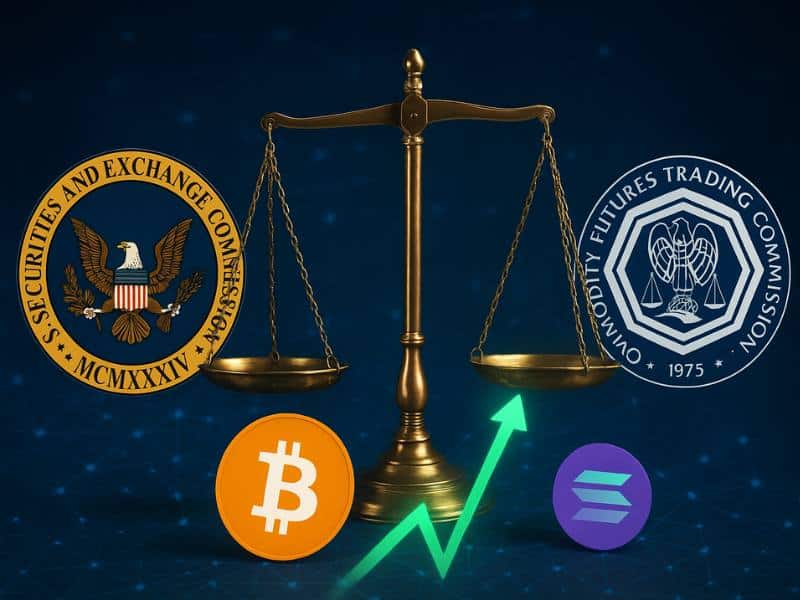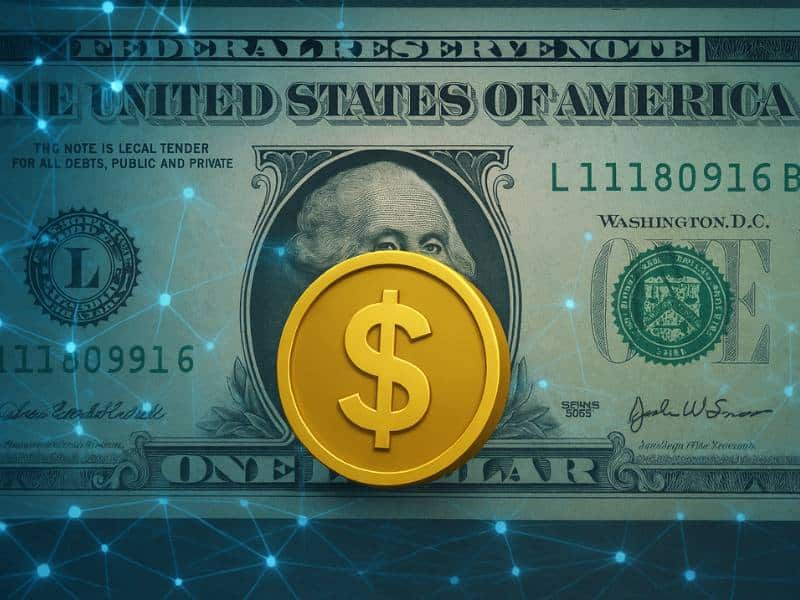Crypto in the U.S. is About to Change
The U.S. government recently shared a big update to its crypto rules. This plan, Strengthening American Leadership in Digital Financial Technology, is 160 pages long and could really change how crypto works in the U.S.
Instead of just talking about how to control crypto, the report is pretty encouraging. It focuses on making clear rules, exploring new ideas, and keeping America at the front of the crypto industry.

Regulatory Clarity: Finally Clearing the Fog
For years, the crypto industry has been stuck in a gray area. No one could say for sure which regulator was in charge, and that uncertainty slowed down innovation, drove projects overseas, and made exchanges nervous about what assets they could list.
The new policy blueprint aims to change that. Backing the Clarity Act, it lays out a straightforward split: the CFTC will oversee digital assets that aren’t securities, while the SEC will continue handling those that are.
This division alone could put an end to years of confusion. But the plan goes further. It calls for a single federal framework that allows platforms to offer multiple types of digital assets and financial products under just one license.
And perhaps most importantly, it reaffirms the right to self-custody. That means crypto holders will continue to have the ability to control their own private keys, keeping the promise of true ownership intact.

Easier Banking for Crypto Companies
For a while, crypto companies have had a tough time with banks, facing restrictions and unexpected account shutdowns. Now, there's a new plan that tells regulators to treat digital asset customers just like any other.
The Federal Reserve is also being asked to give crypto-friendly banks access to master accounts. This would allow for super-fast transfers between dollars and crypto, which could really change things when it comes to moving money around and making crypto more accessible.

Stablecoins: Boosting the Dollar's Strength
Stablecoins are really getting policymakers' attention, and the White House is a big fan of the Genius Act. This act wants to create payment systems that are quick, so stores get U.S. dollars fast, even if people pay with crypto.
The goal? To make stablecoins backed by the U.S. dollar so fast, cheap, and reliable that they become the go-to option for payments everywhere. This would also keep the dollar as the world's main reserve currency.
A Thoughtful Look at the U.S. CBDC
The U.S. is taking a slow and careful approach to the idea of a central bank digital currency (CBDC). People are worried that a digital dollar from the government could hurt innovation and give the government too much control over our money. For now, the U.S. is more interested in supporting privately created digital tokens, but with good rules and real backing.
Compliance and Security: Getting the Balance Right
Any good crypto policy needs to cover security and compliance. The White House plan says that protecting the system from bad actors is key, but it also says we need to do it properly.
The plan suggests tougher anti-money laundering rules, better wallet screening, and closer work between regulators and the crypto industry.
For regular users, this might mean an extra ID check or a few more verification steps sometimes. But the main thing is this: the goal is to stop criminals and fraud without taking away the rights of real users, mainly the right to control their own crypto. Basically, security is getting tighter, but not in a way that hurts crypto’s main idea of personal ownership.

Crypto Taxes: Making Reporting Simpler
If crypto investors agree on anything, it's that taxes are a headache. A new plan aims to fix this with ideas to make things easier for regular users.
One big change: Small crypto transactions might not be taxed. This means you wouldn't have to track every small purchase you make with crypto.
Another plus: Staking rewards would only be taxed when you sell them, not when you first get them. This is good news for people concerned about reports that are too complex and unfair.
Lastly, the plan wants to close loopholes and bring more consistency to the tax system.
If these ideas are approved, crypto taxes could be simpler, less stressful, and more realistic for investors.
What It Means: A Look Ahead
This policy plan isn't just empty talk. It shows where U.S. rules for crypto might be going in the next year. If these ideas are approved, big changes could happen:
The Clarity Act might finally pass, which would give the crypto world the clear rules it has wanted for so long.
Banks might start working with crypto companies, which would end the financial problems they've had for years.
Stablecoins that are backed by the U.S. might become popular for payments around the world, which would make the dollar even stronger.
The U.S. government might even add Bitcoin to its collection of assets.
Even if only some of this plan happens, it would be the friendliest approach to crypto that the U.S. government has ever had. This change could really reshape the market.
